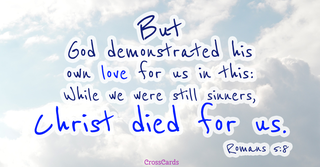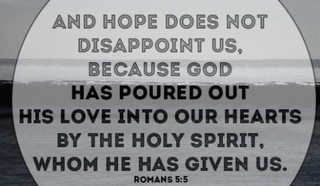
- Recent Translations
- All Translations
Romeinen 5:14
Share
Settings
Romeinen 5:14 Meaning and Commentary
Nevertheless death reigned from Adam to Moses
Though the law of Moses was not yet given, death exerted itself, and extended its dominion over all the sons and daughters of Adam, during the interval between Adam and Moses; which clearly shows that sin was in the world, and that there must be a law in being, which that was a transgression of: death is represented as a king, as sin and Satan sometimes are; and indeed, death reigns by sin, and Satan both by sin and death; their empires rise, stand, and fall together. So Bildad calls death "the king of terrors", ( Job 18:14 ) ; and a very formidable and powerful king he is; his dominion is very large, his power uncontrollable, and the dread of him very great, especially to Christless sinners. The Jews say F2, that at the resurrection the world will be renewed, and will not be as at the first, when (amleb) (atwm jylvd) , "death reigned in the world"; referring to the same period of time the apostle here does. The subjects of his government were not only adult persons, who had been guilty of many actual transgressions, but he reigned
even over them that had not sinned after the similitude of Adam's
transgression.
This does not exclude the dominion of death over such who had sinned after the likeness of Adam, but rather confirms its power over them; nor does it intend adult Gentiles, who did not sin in the same manner, nor against the same law, as Adam did; but it designs infants, not yet guilty of actual sin; and therefore since death reigns over them, who only holds and exercises his dominion by virtue of sin, it follows, that they must have original sin in them; the guilt of Adam's transgression must be imputed to them, and the corruption of nature, from him, derived unto them, or it could not reign over them. A child of a year old, the Jewish doctors F3 say, has not tasted the taste of sin, that is, has not committed actual sin; and observe F4, that young children die on account of the sins of their parents: but the true reason of their dying is here suggested by the apostle; which is the transgression of Adam:
who is the figure of him that was to come;
meaning, either his posterity that were to come out of his loins, whose figure, type, and representative he was; or rather Christ, who is sometimes called (o ercomenov) , "he that was to come"; and the Arabic version reads the words thus, "who was a type of Adam that was expected"; that is, of Christ the second Adam, that was expected to come, according to the promise and prophecy: of him the first Adam was a type, in his human nature, in the formation and quality of it; as the first Adam was made by God of the virgin earth, the second Adam was born of a virgin; as the first, so the second Adam was pure, holy, upright, and wise; in his office, as Lord of the world, head of the woman, priest in his house, and prophet to his posterity; in his marriage with Eve, a figure of the church; but in nothing more clearly than in his being a covenant head to all his offspring: and this is what the apostle chiefly designs, since he runs the parallel between them on this account in the following verses; showing, that as the one conveyed sin and death to all his seed, so the other communicates righteousness and life to all that belong to him. So the Jews say F5, that by Adam is intimated the righteous branch, the Messiah; and that (xyvm dwo awh Mda dwo) , "the secret of Adam is the secret of the Messiah".
F2 Tzeror Hammor, fol. 96. 1.
F3 T. Bab. Yoma, fol. 22. 2.
F4 Massecheth Calah, fol. 17. 2.
F5 R. Abraham Seba, Tzeror Hammor, fol. 2. 3. & 3. 1.

